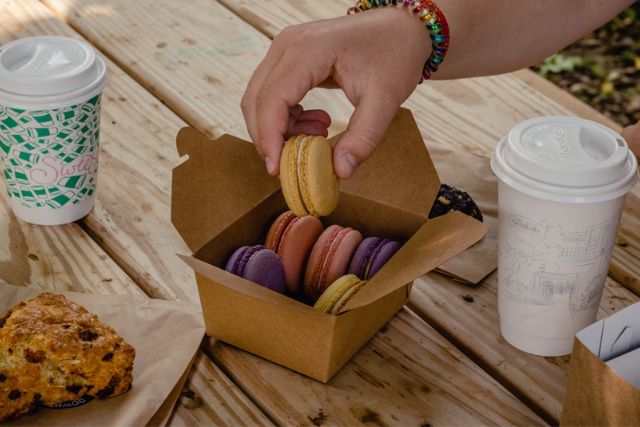
Where do you work and what is your role?
I’m the L&D Manager at the Liverpool School of Tropical Medicine. I’m responsible for all learning and development activity for around 700 staff — from induction through to skills development, leadership and management, career development, and coaching.
The benefit of being in a small and specialist institution is that I get involved in a variety of projects and initiatives, often wearing many hats. The challenge, however, is that it’s just me and an HR Coordinator managing L&D duties alongside other HR responsibilities. This means I need to engage and involve people across the institution to help deliver, mentor, and champion learning, progress, and growth throughout LSTM.
When did you join the SDF?
September 2019
Why did you want to join the SDF?
When I joined LSTM in August 2019, it was my first time in an L&D role within a higher education setting. As a lone practitioner, I knew I needed to connect with other like-minded professionals. I’ve found SDF members to be generous with their time and ideas, and it’s helped me appreciate the variety of responsibilities we take on — and the positive changes we can make to people’s working lives.
What’s the best thing about the SDF?
Knowing there are like-minded professionals out there who understand the challenges and joys of this work.
What are you working on at the moment?
I’m currently working on a project to showcase technician career development, running an internal mentoring programme, and supporting the seven apprentices we’ve recruited as they approach the end of their apprenticeships.
I’m also commissioning a leadership and management programme for professional services, and developing a funding pot and development programme to support racially minoritised researchers on their path to professorship.
We’re in the third year of promoting four CPD days annually to encourage staff to take time for learning. I’ve tied CPD days to our learning strategy, helping people feel empowered to grow without guilt — making development a valued part of their working life.
What does a typical day look like?
My dog wakes me up at 4 a.m. for an early breakfast (don’t ask why I didn’t nip that in the bud). Around 7 a.m., I make my wife a coffee, rouse my two daughters for school and college, and then do the quick 20-minute drive to campus.
My day involves emails, project updates, and the day-to-day work of L&D — setting up courses, speaking to suppliers, writing sessions, and connecting with people involved in various projects. LSTM runs on coffee and chats, so I like to be in the social space first thing to catch up and stay connected. Keeping in touch with those I’m working with is key to making things happen.
Tell us about an event that altered the course of your life and career / The person who has influenced you the most
I spent ten years at a housing association I’d never heard of before joining, but it turned out to be a training ground for many current chief executives and directors.
My line manager (the HRD) and the CEO believed in creating a great place to work as the foundation for performance. They role-modelled good leadership — they listened, gave sound advice, stretched me, championed me, and encouraged me to take on difficult projects.
The confidence boost from successfully delivering tricky projects was incredible — and they knew how to celebrate wins too.
Work-life balance — what leisure activity do you enjoy the most?
Running, box sets (currently obsessed with Slow Horses), baking brownies, yoga, and walking the dog.
Something about you people would find surprising
I always think I’m an open book, but when I mention that I’ve lived in Italy, worked on a farm in New Zealand, or that I used to work in HR at Virgin Management and have been to parties with Richard Branson and Paul Young — even people I’ve known for 20 years are shocked! So maybe I don’t talk about myself as much as I think.
What’s your greatest fear?
Rats. Everything else I can handle.
What’s the worst job you ever had?
My first job after university was at a market research firm. I’d moved cities after a three-month job search, but the environment was toxic. The owner chain-smoked in the office, the office manager routinely humiliated staff, and client report results were often faked.
I didn’t pass my probation and felt like a failure. That experience affected my confidence well into my next job — until I worked with better teams. It was a visceral reminder of how important workplace culture is to learning and growth, and it still influences how I create environments where people can settle in and thrive.
What would improve the quality of your life?
Is it too braggy to say I’m happy where I am?
What’s coming next for you?
I’m off for a break in Marrakesh. On the work horizon, I want to finalise the technician career development document and expand our mentoring pool at LSTM. Then — who knows what we can achieve in 2026?
